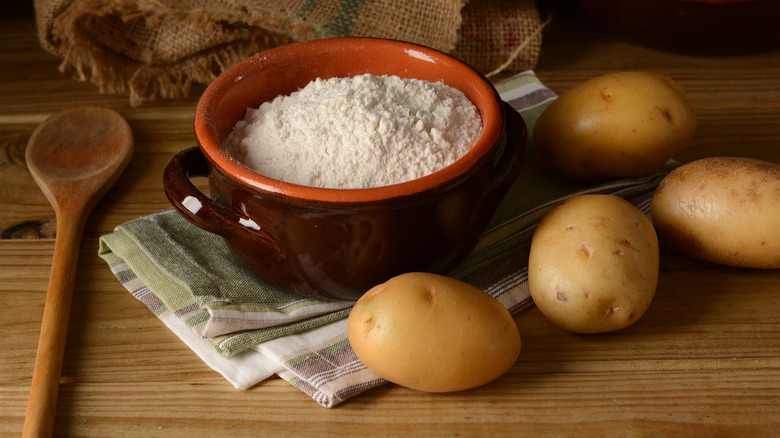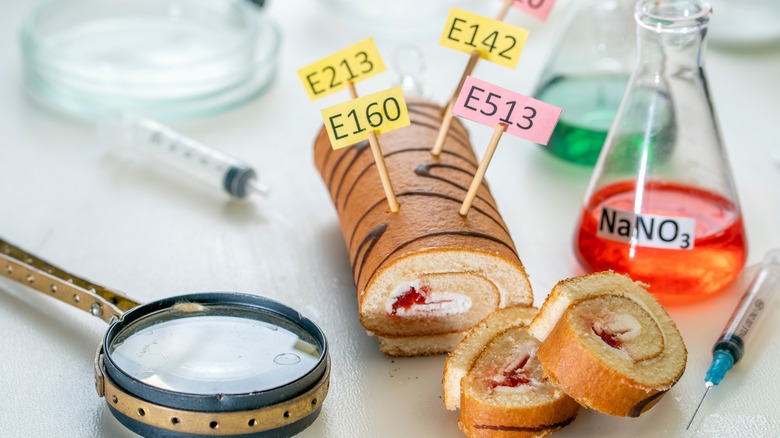What It Means If Potato Starch Is Modified
Potato starch may not seem like a very common ingredient, but it's actually one of the most popular types of starches. You'll find it in some shredded cheeses or maybe one of your favorite ranch salad dressings. Or, you may even come across a bag of the fine powder at your local grocery store and grab one to crisp up your crunchy fried chicken or make some Hong Kong-style scrambled eggs. Its modified counterpart, however, is not as readily available but is just as much employed in creating convenience foods.
When potato starch is modified, its structure has been altered to perform appropriately for its final use. This can mean physically treating it with elements such as heat or pressure to turn it into a thickening food ingredient. Or, chemically processing potato starch via means like oxidation to end up as a food additive. At other times, potato starch undergoes an enzyme reaction to modify it again into a food ingredient.
The product of each of these processes is potato starch with enhanced properties. Instead of readily degrading in texture and becoming less digestible, products made with modified potato starch withstand this process and maintain their consistency. These products are also more suitable for longer storage than those made with its unmodified version and can withstand extreme temperatures from freezing to thawing. In this regard, modified potato starch offers more advantages than that of its natural or native state.
Reasons for modifying potato starch
The main reason for modifying potato starch is to enhance it. For one, in its natural state, potato starch isn't soluble in cold water and must be cooked first before applying it. Thus, processing it by roasting or cooking modifies potato starch so that it's readily soluble. In a readily soluble state, potato starch can mix with liquids like water so that it can be used in further processing. In frozen foods such as dough, modified potato starch improves the quality by helping the dough retain moisture and therefore prolongs its shelf life.
Another reason for modifying potato starch is to take advantage of its resulting ability to form gels and then bulk or lend body to dairy products and desserts. Often, when sugar is removed from a product like ice cream, for example, a bulking agent fills in the role by providing properties such as fewer calories and satiety. Otherwise, you may bump into it outside of the kitchen as a stabilizer in your skincare products.
Here, it helps produce a viscous product with a soft feel. Keep in mind that a common misconception is that modified potato starch has been genetically modified, but that's not true. The mediums employed in altering its structure do not alter potato starch's DNA, nor is it made with any genetically modified organisms (GMOs). Hence, modified potato starch is not a GMO.

